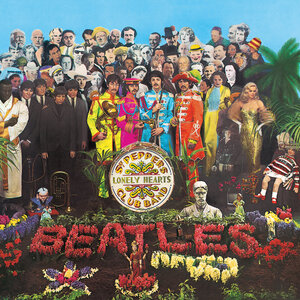Eric Staebler made his presence felt with 19 points (including three 3-pointers) and 15 rebounds. This was in the Tigers' season opener. In their only game before the Thanksgiving break, the MACA boys took on the Streeters of Sauk Centre. Sauk Centre picked up its second win of the season, 57-49 over the orange and black.
Staebler was a force but the Tigers had trouble summoning momentum, as they only had 14 points at halftime. The Streeters had 25. The second half was more upbeat for coach Mark Torgerson's squad. The orange and black had a 35-32 advantage over the visitor in the second half.
Overall the Streeters had just too many weapons. Their main weapon was Matthew Moritz who put in 21 points. Cole Neubert complemented that total with his 14 points. Austin Nelson scored seven, Riley Primus five, Shariff Silas and Carter Kranz four each, and Jay Friedrichs two.
Moritz sank three 3-point shots and had two steals. Primus and Nelson each made a shot from 3-point range. Neubert collected eight rebounds. The victor was 18 of 44 in total field goals.
Meanwhile the Tigers made 18 field goals in 37 attempts. We were nine of 20 in freethrows.
Noah Grove made one 3-pointer to go with Staebler's three long-rangers. Grove's point total was ten. Sean Amundson scored six points, Riley Biesterfeld five and C.J. Nagel four. Jacob Zosel had two points and dished out the team-best four assists. Grove executed three steals. Andrew Goulet scored two points and Robert Rohloff one.
Boys hockey: Willmar 6, MBA 3
MBA played a home game on the Benson ice on Tuesday, Nov. 25. This was MBA's second game of the season and Willmar's first. Willmar seized the key momentum in the first period. Josh Tinklenberg and Isaac Kobienia scored to put Willmar up 2-0. Riley Grabow and Kobienia assisted on the Tinklenberg goal. Grabow supplied an assist on the Kobienia goal.
Brennden DeHaan got MBA on the board with a second period goal, assisted by Corey Goff. But Kobienia proceeded to put the puck in the goal again for Willmar. Nate Ackerman assisted.
MBA began the third period scoring with a Taner Gimberlin goal, with Goff and Eric Johnson assisting. MBA got the score tied 3-3 with an Eric Johnson goal that had Gimberlin and DeHaan assisting.
Willmar owned the rest of the period (and the game). Austin Smith was the Cardinal scoring at 10:55. Then, Sawyer Delp scored for the red crew at 14:20, assisted by Smith. Tinklenberg finished the night's scoring with a goal assisted by Kobienia. So, it's a 6-3 final score with the red team up.
MBA was left with a 1-1 mark.
Tony Bruns worked in the goal for MBA and had 25 saves. Jacob Anderson had nine saves as the Willmar goalie.
More on UMM coaching
In the wake of UMM's tepid announcement regarding the football coaching situation - the incumbent is out - I tried gathering a little background. The Morris newspaper gave us smoke signals, as it were, forcing us to surmise exactly what happened.
What happened, if you read between the lines, is that this is an involuntary departure. It's very common in college sports. I would have preferred that the newspaper not "tease" us in this manner. If a coach is not going to return, then he either resigned or got fired. There should be some direct indication which it was.
Well, I surmised this was an involuntary departure, so I then tried to glean exactly why this happened. I knew UMM football had a struggling 2014 season, but I didn't realize until doing an online check that the Cougars failed to win a single game.
It is amazing how far UMM football has fallen since its heyday of the 1970s. I remember going to Ithaca NY to cover a playoff game. I remember the atmosphere there wasn't like here. "Minnesota nice" was absent. I remember lots of black-haired people with a southern European complexion who could be loud and rude. But I have also heard it said that those "rude" east coast people would actually be the first to help you if they notice you're in trouble! Cultural relativity.
Today UMM plays a schedule vs. virtual no-names. Even if we win, I'm not sure how impressed I'd be. But we sure didn't win.
What an informed source tells me, is that the UMM coaching staff "gave up" during the season. They seemed to "quit on the team." I do believe this is a pretty serious sin. You have to play the percentages at all times. Reportedly there were lapses in that regard.
Coaching University of Minnesota-Morris football seems to have its discouraging aspects. Well, then just set a minimal goal of "one win," like the Marshall (WV) football team in the movie about that school's recovery after a devastating plane crash. Remember Matthew McConaughey? Coach Hickman should have been a little like Matthew McConaughey.
Whatever the case, jobs at UMM are considered plum jobs. A hard-hosed attitude would be advisable regardless of the wins and losses.
Now what? Wouldn't it be wonderful for UMM to use this opportunity to just cancel its football program, based on the wave of opinion coming down on the sport (due to head injuries etc.). I don't think that will happen. What will happen? I don't know, but I'm not sure I'm going to care. ("I don't care" easily passes the lips of those in my generation: "baby boom cohort No. 2.")
- Brian Williams - morris mn Minnesota - bwilly73@yahoo.com


























